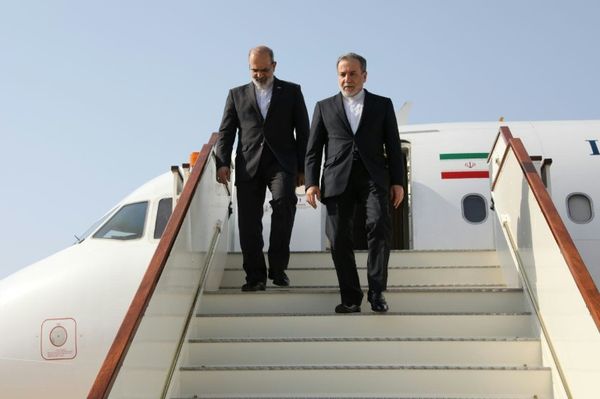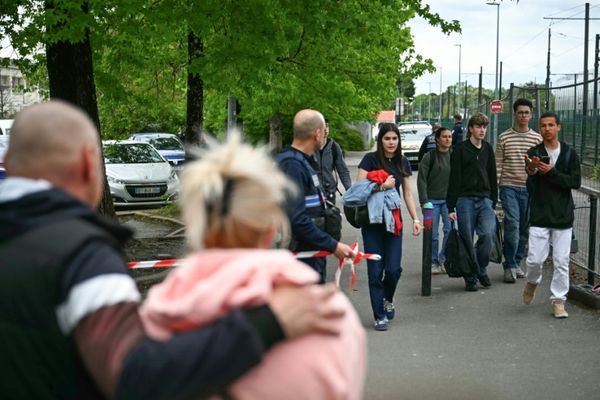
The head of the Russian Wagner mercenary group, Yevgeny Prigozhin, said overnight he had taken control of the Russian city of Rostov-on-Don as part of an attempt to oust Russia’s defence minister. The 62-year-old's open challenge to Moscow’s military comes after months of growing tensions over the conduct of the war in Ukraine.
Wagner mercenary chief Yevgeny Prigozhin announced early on Saturday that his forces had taken control of Russia’s army headquarters in the city of Rostov-on-Don, a city of more than a million people where Russia has based one of its outposts overseeing military operations in Ukraine.
Prigozhin demanded that Russian Defence Minister Sergei Shoigu and armed forces Chief of Staff Valery Gerasimov come meet him in Rostov, a city near the Ukrainian border.
Prigozhin’s open rebellion came after he accused the Russian military of launching strikes on Wagner bases in Ukraine on Friday.
"The evil that the military leadership of the country brings must be stopped," Prigozhin said.
In a televised address to the nation later Saturday morning, Russian President Vladimir Putin called the armed rebellion by Wagner mercenaries "treason" and a “stab in the back” while vowing to punish those responsible.
Russian security services said they was launching an "anti-terror operation" in Moscow and the surrounding region while authorities launched a criminal probe into Prigozhin and called for his arrest.
Read moreShoigu and Gerasimov: Masters of Putin's wars
Mounting tensions
Prigozhin’s move comes amid reports of mounting conflict between the Wagner Group and Moscow’s military over the past several months.
Prigozhin has been locked in a bitter power struggle with the defence ministry as his forces spearheaded battles that cost the lives of many of his men for limited gains in east Ukraine.
He had earlier accused the Russian military of trying to "steal" victories from Wagner and slammed Moscow's "monstrous bureaucracy" for slowing progress on the ground.
And he blamed Defence Minister Shoigu and other senior officials for the deaths of many of his fighters, claiming Moscow had not provided sufficient ammunition.
Unlike Russia's generals, who have been criticised for shirking the battles, the stocky and bald Prigozhin regularly poses for pictures alongside mercenaries allegedly on the front lines.
Earlier this year he posted on social media a picture from the cockpit of a SU-24 fighter jet and challenged Ukrainian President Volodymyr Zelensky to an aerial duel.
The former hotdog seller and native of Putin's hometown Saint Petersburg, who was jailed for nearly a decade during the Soviet era, for years dismissed allegations he was linked to Wagner.
But last September, he conceded that he had founded the fighting force and opened headquarters in Saint Petersburg.
Last year, a video surfaced of a bald man bearing a strong resemblance to Prigozhin in a prison courtyard, offering contracts to prisoners to fight in Ukraine with a chilling set of conditions.
Close ties
But Prigozhin’s rapid rise to power despite his lowly upbringing could not have been possible without Putin’s support as ties between both men can be traced back decades.
During the final years of the Soviet Union, Prigozhin served nine years in prison after being convicted of fraud and theft.
He later owned a hot dog stand and then fancy restaurants, which drew interest from Putin. In his first term, the Russian leader took France’s then president Jacques Chirac to dine at one of them.
Putin helped Prigozhin open a factory in 2010 that was built on generous loans by a state bank. Prigozhin also organised catering for Kremlin events for several years – earning him the nickname “Putin’s chef” – and provided catering services to the Russian military.
Opposition figure and corruption fighter Alexei Navalny accused Prigozhin’s companies in 2017 of breaking antitrust laws by bidding for some $387 million in Defense Ministry contracts.
Murky details
Prigozhin has been described as a billionaire with a vast fortune built on state contracts, although the extent of his wealth is unknown. Part of his rumoured fortune come from Wagner’s operations in Africa and Syria.
A 2018 investigation by French newspaper “Libération” reported that Prigozhin received 25 percent of the revenue from the gas and oil fields that Russian paramilitary forces helped recapture from militants of the Islamic State group.
Wagner Group mercenaries are reportedly protecting a gold mine in Sudan that is suspected of being operated by a company indirectly controlled by Prigozhin.
Washington levied sanctions on Prigozhin and employees of the Internet Research Agency, accusing Prigozhin of meddling in US elections through his internet "troll factory".
Prigozhin denied any involvement and asked for $50 billion in compensation from the United States in 2020. He finally admitted to having founded the Internet Research Agency in February of this year.
(FRANCE 24 with AP, AFP and Reuters)







